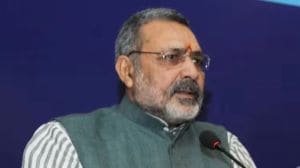Olympics adds to China’s power woes: IEA
China will have to keep polluting power stations around Beijing operating at full speed during the Olympics the IEA said.

China will have to keep polluting power stations around Beijing operating at full speed during the Olympics — despite a clean air campaign — because of mounting fuel shortages, the IEA said on Friday.
The International Energy Agency said every watt of electricity that could be produced, would be needed by the huge numbers of Olympic tourists expected, and shortages, which have already caused rationing, could worsen before the event.
An IEA report said: “There is talk of closing down industrial sites around Beijing and Shenyang, the capital of the northern Liaoning province and a co-host city, a month ahead of the Olympics, which are scheduled to begin on 8 August in order to improve air quality,” the IEAgency said.
But it added, “It is highly unlikely that local refineries will be shut down, given the country’s product supply constraints, and coal-fired power generators – there are simply no alternatives to provide electricity to the capital, which will be crowded with tourists during a hot summer.”
The agency said most local refineries were reportedly “reasonably well equipped in term of pollution controls” so closure would have only a “minimal net effect on reducing pollution.
The Olympics would lead to a surge in demand for transportation fuel “as tourist, spectators and athletes fly into the country and travel to the different venues around China.
“Moreover, it remains to be seen whether the Government will be successful in encouraging Beijing residents to leave their cars at home to prevent excessive congestion, as has been reported.”
The IEA, an offshoot of the Organisation for Economic Cooperation and Development, explained that Chinese authorities and Chinese energy suppliers were squeezed between high demand, high world prices and lower controlled prices in China.



- 01
- 02
- 03
- 04
- 05




























